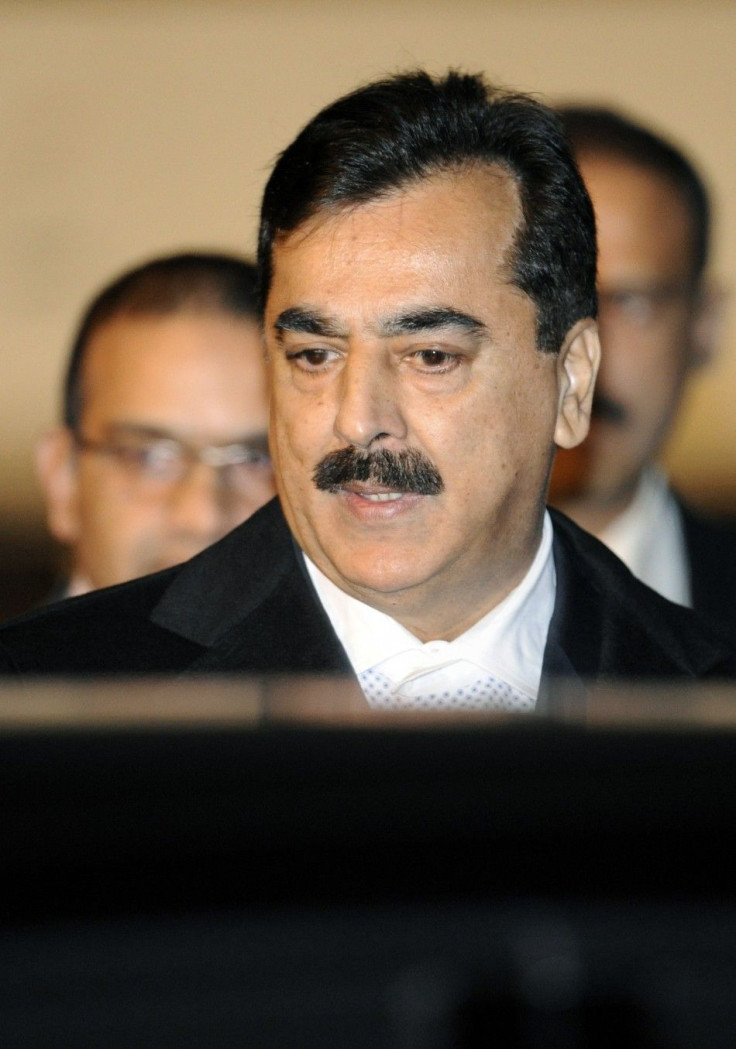Pakistan Needs Nuclear Power To Meet Energy Needs: Gilani

Pakistan insists that it needs to develop nuclear power and technology in order to satisfy its tremendous energy needs.
While attending the two-day nuclear security summit in Seoul, South Korea, Pakistani Prime Minister Yousuf Raza Gilani spelled out his country’s stance on atomic energy, but cautioned that Islamabad seeks such power only for peaceful purposes.
Accompanied by foreign minister Hina Rabbani Khar, ambassador to China Masood Khan and ambassador to the U.S. Sherry Rehman, Gilani said he wants the world to realize that Pakistan has “efficient command and control over its stocks of nuclear materials.”
“As we meet here [Seoul], we break new ground on the evolving global nuclear security architecture, the role of the [International Atomic Energy Agency] IAEA, and protection of nuclear materials and radioactive sources,” Gilani said in a statement.
“Our concerns on these vital issues put a roadmap in our hands for concerted national actions and international coordination to enhance nuclear security.”
Gilani, citing that the IAEA’s board of governors has already approved safeguard strategies put in place at two civilian nuclear power facilities in Pakistan, said his country is committed to promoting the highest security precautions at its atomic plants.
“We have supported the work of the global initiative to combat nuclear terrorism and our reports to the UN Security Council… have shared details of the measures we have taken to secure sensitive materials and technologies,” the Prime Minister stated.
“We have been implementing Nuclear Security Action Plan in cooperation with the IAEA and the plan reinforces physical protection of nuclear medical centers and civilian nuclear plants.”
Gilani added that in response to the Fukushima nuclear emergency in Japan last March, Pakistani authorities conducted comprehensive stress tests at its nuclear plants and upgraded safety standards at the sites.
“We have focused especially on capacity-building and interaction with the international community,” he noted.
“Together, we have taken steps to create a secure world that will not live under the fear of nuclear terrorist attacks. We firmly believe that nuclear material must never fall into the hands of terrorists.”
The Korea Times newspaper reported that Gilani will also meet directly with President Barack Obama to try to repair the fractured ties between Pakistan and the U.S.
“After the NATO attack on the… border of Afghanistan and Pakistan, relations became very tense,” Gilani conceded, referring to an attack that killed two dozen Pakistani soldiers.
“We have decided to have new rules of engagement and of cooperation with the U.S. We have presented recommendations… I think from today the debate there is ongoing.”
India, which also has nuclear power capability, would be greatly concerned by Pakistan’s expansion of atomic technology. Similarly, the proliferation of terrorists and extremists within Pakistan raises questions in the west about how the country can control its nuclear facilities.
Gilani sought to assuage such concerns by declaring: “Pakistan is a front-line state [in] fighting against extremism and terrorism. We are on the border of Afghanistan. Therefore the main focus will be on Afghanistan and on Pakistan and especially on terrorism and extremism, and Pakistan’s role in political reconciliation in Afghanistan.”
He added: “We have long experience -- a history of 37 years -- managing nuclear power plants. People are concerned about nuclear security and safety. We have done a lot of work on this.”
According to the Deccan Herald, an English language Indian newspaper, Pakistan has a rapidly growing arsenal of nuclear weapons, and may have as many as 200 warheads within a decade. As such, New Delhi has “very little confidence” that Pakistan can keep its nuclear material away from militant groups.
It is also not clear if Gilani will meet with his Indian counterpart, Manmohan Singh, during the Seoul summit.
© Copyright IBTimes 2024. All rights reserved.





















